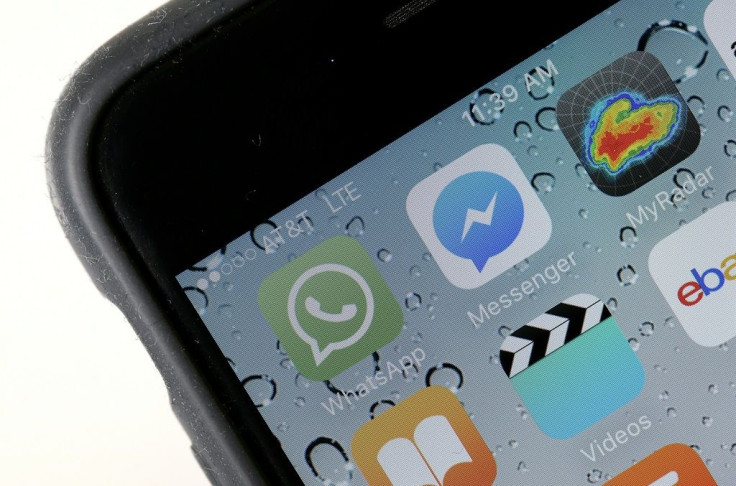Trump Slams BFF Tim Cook, Apple For 'Refusing To Unlock Phones Used By Killers'

KEY POINTS
- Trump bashes Apple for refusing to unlock iPhones owned by a Lieutenant of the Royal Saudi Air Force that murdered three sailors in Florida
- He says Apple should do this for him for "helping Apple all of the time on TRADE"
- Apple opposes building back doors to unlock devices because these can also be exploited
Apple Inc. is pushing back hard against demands by both the Department of Justice (DOJ) and president Donald Trump it unlock two iPhones owned by an officer of the Royal Saudi Air Force that shot dead three U.S. Navy sailors and wounded eight others at Naval Air Station Pensacola in Florida on Dec. 6, 2019.
Second Lt. Mohammed Saeed Alshamrani posted anti-American, anti-Israeli and jihadist messages on social media before his rampage, saying “the countdown has begun.” He began his killing spree, which he said was triggered by his hate for Americans due to its support of Israel, at 6:51 a.m.
Alshamrani was later killed by Escambia County sheriff deputies after they arrived at the scene. He was part of a training program sponsored by the Pentagon as part of a security cooperation agreement with Saudi Arabia.
"This was an act of terrorism," said attorney-general William Barr Monday. "The evidence shows the shooter was motivated by jihadist ideology."
After Barr's statement, Apple immediately responded by saying it provided gigabytes of information to law enforcement related to Pensacola. Apple, however, reaffirmed it won't build a "backdoor," or specialized software, to give law enforcement more access to the shooter's iPhones.
"We reject the characterization that Apple has not provided substantive assistance in the Pensacola investigation," the company said in a statement, adding it had already "produced a wide variety of information associated with the investigation."
On Tuesday, Trump entered the fray and tweeted that "We are helping Apple all of the time on TRADE and so many other issues, and yet they refuse to unlock phones used by killers, drug dealers and other violent criminal elements. They will have to step up to the plate and help our great Country, NOW! MAKE AMERICA GREAT AGAIN."
Apple CEO Tim Cook is a known confidant of president Trump. Both powerful figures have held several meetings to talk about the U.S.-China trade war, with Cook believed to have asked the president for tariff relief on Apple products.
For Trump's part, he has consistently praised the Apple head, calling him "someone I greatly respect." Trump slamming Apple for its unwillingness to unlock the iPhone and aid in FBI investigation is a a sour note to Trump and Cook's otherwise sweet relationship.
Apple's consistent argument in criminal cases such as these is it doesn't have the ability to unlock an iPhone unless it develops a back door. In its statement Monday, Apple said it still opposes building back doors of all kinds because these can also be exploited by bad actors.
Apple ran into the same problem in 2016 showdown when the FBI and the DOJ sued it to gain access to an iPhone used by Syed Rizwan Farook. This man and his wife, Tashfeen Malik, from Redlands shot dead 14 people and wounded 22 others in a terrorist attack on Dec. 2, 2015. The standoff with Apple ended when the FBI found a willing private vendor that broke the iPhone's security.
“I agree 100 percent with the courts. In that case we should open (the iPhone) up,” said Trump, who at the time was campaigning for president.
© Copyright IBTimes 2024. All rights reserved.





















